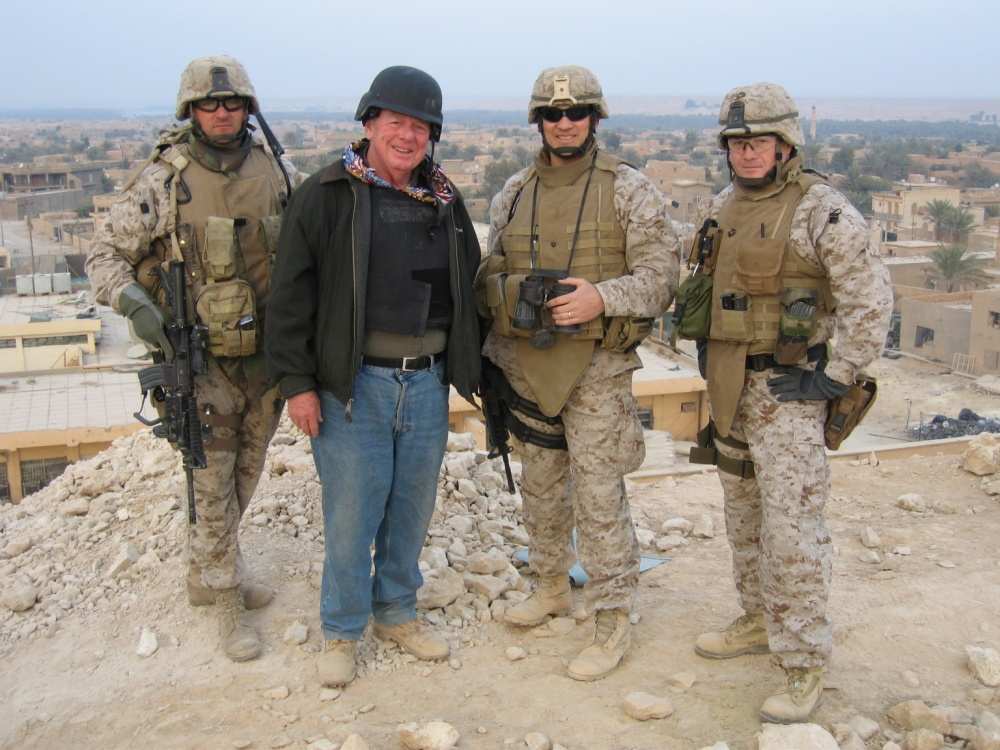Legendary combat journalist and “We Were Soldiers Once… and Young” author Joe Galloway died in North Carolina on Wednesday from heart failure at age 79.
Galloway was an award-winning correspondent whose on-the-ground reporting spanned more than 50 years. During the Vietnam War, Galloway accompanied the 1st Battalion, 7th Cavalry Regiment, who became swarmed by enemy combatants in the Ia Drang Valley in November 1965. The ensuing battle, called The Battle of Ia Drang, was one of the first of the Vietnam War.

Under enemy fire, Galloway aided two soldiers burned by napalm during the battle, helping carry one soldier to safety. For his heroics, he became the only civilian to receive the Bronze Star Medal with “V” device 33 years later in 1998.
In 1992, Galloway released the book, “We Were Soldiers Once… and Young,” detailing the account of his time during the Battle of Ia Drang. Galloway co-wrote the book with then-retired Lt. Gen. Harold “Hal” Moore, who commanded the 1st Battalion, 7th Cavalry Regiment during the battle. The book was the basis for the 2002 film “We Were Soldiers” starring Mel Gibson and Sam Elliott.
Galloway and Moore released a sequel book in 2008, titled “We Are Soldiers Still: A Journey Back to the Battlefields of Vietnam.”
Galloway was born in a small Texas town in 1941. His journalism career began with a local newspaper before he joined United Press International in 1961. During his reporting, he anticipated that war would break out in Vietnam, and pushed until he was transferred to UPI’s Tokyo bureau in 1964. He went on to serve four tours of combat coverage in Vietnam.
Gen. Norman Schwarzkopf met Galloway in Vietnam and called him “the finest combat correspondent of our generation; a soldier’s reporter and a soldier’s friend.”
After Vietnam, Galloway covered the 1971 India-Pakistan War, the 1990-1991 Desert Shield and Desert Storm, and traveled repeatedly to Iraq between 2003 and 2006.
Aside from his Bronze Star, Galloway received a National Magazine Award, National News Media Award from the U.S. Veterans of Foreign Wars, the President’s Award from the Arts of the Vietnam Veterans Association of America, the BG Robert L. Denig Award for Distinguished Service from the U.S. Marine Corps Combat Correspondents Association, the Abraham Lincoln Award from the Union League Club of Philadelphia, and the John Reagan McCrary Award from the Congressional Medal of Honor Society.
Galloway retired from journalism in 2010. He served as a consultant for the Department of Defense’s Vietnam War 50th anniversary Commemoration program since 2013.
The program posted a tribute to Galloway on its website, calling Galloway “instrumental” in collecting the video-recorded stories of nearly 800 Vietnam veterans.
“Joe’s remarkable experiences in Vietnam during the war, along with his uncanny ability to gently ask a tough question, helped bring stories to light that had remained buried for decades, along with healing in the telling. We will sorely miss our friend,” the commemoration said.
“A man who made sense of the Battle of Ia Drang for a generation is gone,” the Army’s 18th Airborne Corps tweeted.



